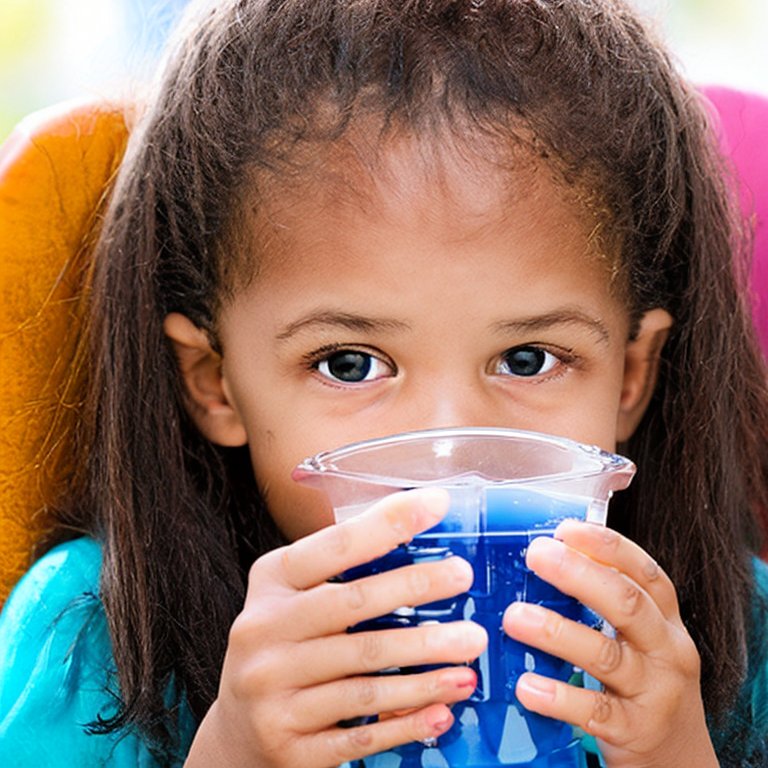Sugar-sweetened beverages have become a significant part of many children's diets, contributing to various health issues such as obesity, dental problems, and an increased risk of chronic diseases.
As a parent, it's important to be aware of your kids' sugar intake and take steps to reduce their consumption of sugary drinks. In this guide, we will explore the impact of excessive sugar consumption, provide tips for identifying hidden sugars, and offer practical strategies to help your children develop healthier beverage habits.
The Impact of Excessive Sugar Consumption
Understanding the Risks
Excessive sugar consumption can lead to a range of health issues. Consuming sugary beverages regularly contributes to weight gain, as these drinks are high in calories and provide little to no nutritional value. Furthermore, sugary drinks can cause tooth decay and increase the risk of developing type 2 diabetes, heart disease, and other chronic conditions later in life.
Recognizing Hidden Sugars
Sugar is not only found in obvious sources like soda or fruit juices but can also hide in seemingly innocent drinks. Many flavored drinks, sports drinks, energy drinks, and even some flavored waters contain added sugars. Reading labels carefully and understanding different names for added sugars, such as high fructose corn syrup, cane sugar, or sucrose, is crucial in identifying hidden sources of sugar.
Strategies for Reducing Sugary Beverage Consumption
Encourage Water as the Primary Drink
Water should be the go-to beverage for children, as it is essential for their overall health and well-being. Encourage your kids to drink water throughout the day by making it easily accessible and appealing. Adding a slice of lemon or cucumber can add a touch of flavor without the added sugars.
Introduce Infused Water and Homemade Flavored Drinks
Make drinking water more exciting by creating infused water with natural flavors. Add fruits like berries, slices of citrus, or herbs like mint to a pitcher of water and let it infuse for a refreshing and naturally flavored drink. Additionally, you can make homemade flavored drinks using unsweetened fruit juices mixed with sparkling water for a fizzy treat.
Offer Milk and Unsweetened Plant-Based Alternatives
Milk and unsweetened plant-based alternatives, such as almond or oat milk, can be healthy options for children. These beverages provide essential nutrients like calcium and vitamin D. Opt for low-fat or non-fat milk and check the labels of plant-based alternatives to ensure they do not contain added sugars.
Limit Fruit Juice Consumption
While fruit juice can be a source of vitamins, it is also high in sugar and lacks the fiber found in whole fruits. Limit fruit juice consumption and opt for whole fruits instead. If you do offer juice, dilute it with water to reduce the sugar content.
Be a Role Model
Children often imitate their parents' behaviors, so set a good example by reducing your own consumption of sugary beverages. Opt for water, herbal tea, or other healthier alternatives, and show your children that these choices can be enjoyable and satisfying.
Involve Children in Making Healthy Choices
Engage your children in making beverage choices by discussing the impact of sugary drinks on health and exploring healthier options together. Take them grocery shopping and encourage them to read labels to identify hidden sugars. By involving them in the decision-making process, they will feel empowered and more likely to make healthier choices.
FAQs about Reducing Sugary Beverage Consumption
Q: Are 100% fruit juices a healthy alternative to sugary drinks?
A: While 100% fruit juices contain natural sugars, they lack the fiber found in whole fruits, and their consumption should be limited. It's best to prioritize whole fruits, which provide additional fiber and nutrients.
Q: How can I help my child transition from sugary drinks to water?
A: Gradual transitions are often more successful. Start by diluting sugary drinks with water, gradually increasing the water-to-sugary-drink ratio. Introduce infused water or flavored drinks as a tasty alternative.
Q: What are some healthy alternatives to soda or sports drinks?
A: Water is the healthiest option. However, unsweetened herbal teas, infused water, homemade flavored drinks, and milk (or unsweetened plant-based alternatives) can be refreshing and healthier alternatives.
Q: How can I address resistance from my child when reducing their sugary drink consumption?
A: Communicate openly with your child about the reasons for reducing sugary drinks and the benefits of making healthier choices. Involve them in decision-making and offer alternatives they find appealing.
Q: Can occasional indulgence in sugary drinks be allowed?
A: It's okay for children to enjoy sugary drinks occasionally, as long as it's in moderation. The goal is to develop healthier habits by reducing regular consumption.
Q: Are artificially sweetened drinks a good alternative to sugary beverages?
A: While artificially sweetened drinks may be low in calories, they can still contribute to a preference for sweet tastes. It's generally best to focus on water, infused water, or other healthier alternatives.
Conclusion
Reducing your child's consumption of sugary beverages is an important step towards promoting their overall health and well-being. By understanding the risks of excessive sugar consumption, identifying hidden sugars, and implementing strategies such as encouraging water as the primary drink, introducing infused water and homemade flavored drinks, and involving your children in making healthier choices, you can help them develop lifelong habits that support their health. Remember to be a role model and provide support and guidance throughout the process. Your efforts will contribute to their long-term health and wellness.
Read more online here: Are Your Kids Drinking Too Much Sugar?












